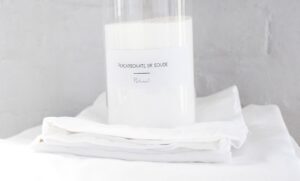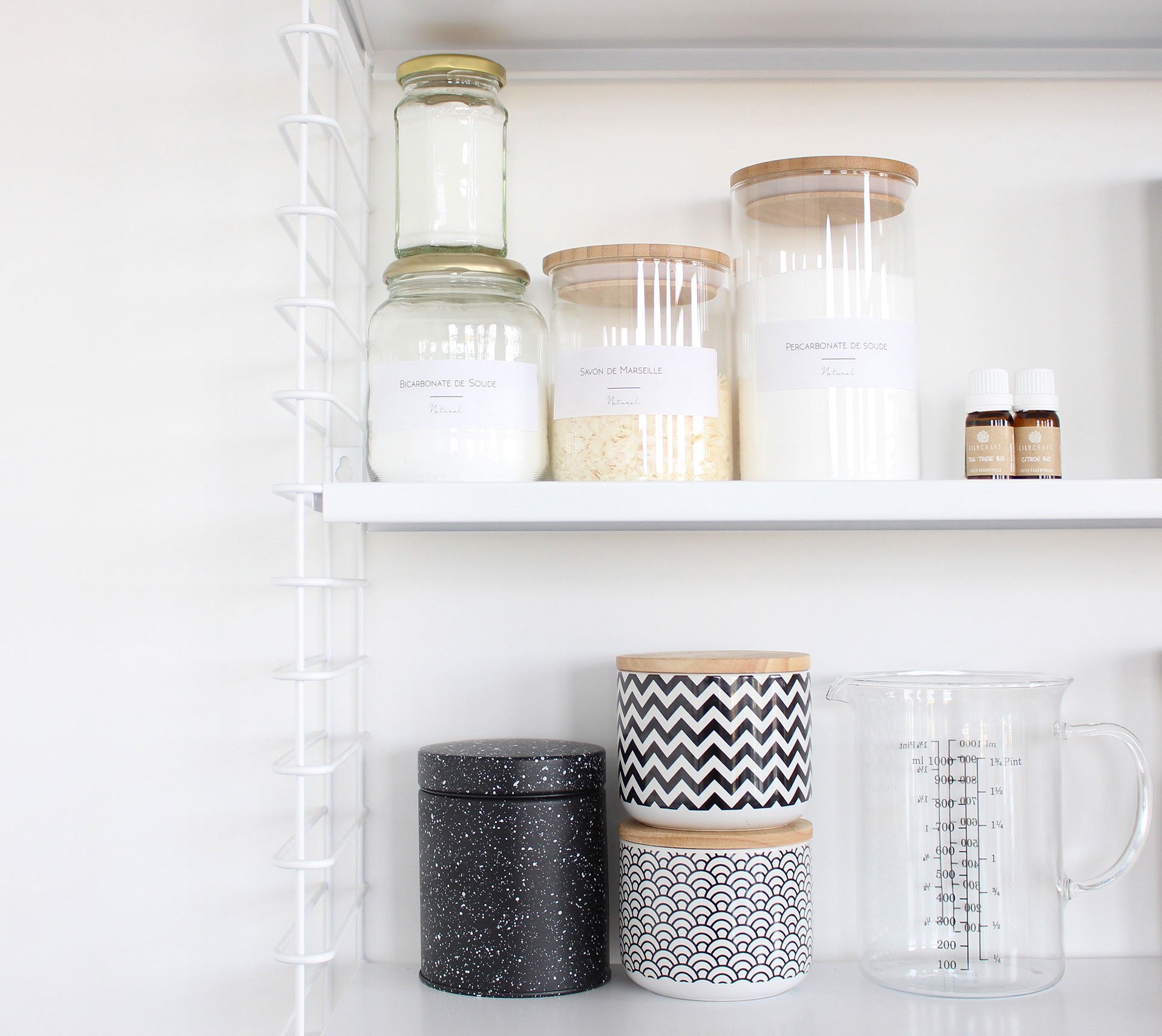Categories
Recent Posts
- Textile Industry: Towards Responsible Consumption
- What are the advantages of warm & natural colours in a bedroom?
- Weekend trip at the heart of the authentic “Domaine de St Jean”
- What is the difference between Ecological fibres and Natural fibres?
- Why is a policy of fair prices all year round more ethical than a policy of sales?
How to wash your bed linen in an ecological way?
- Audrey
- No Comments
This is a question that often comes up, to which we already had some answers, but not really in an organized way. So, as it is part of an ecological approach, we give you some advice to wash your clothes and home textile in a general way and more particularly your bed linen.
In order to write this article, we tested recipes from blogs and natural cleaning products workshops, asked questions to experts. Because we’re testing before we tell you it works!
Further down in this article, you will also find links to blogs to make your household products (in general) natural, and some links where you can get the ingredients you need to make your own laundry product (solid or liquid) and softener.
It’s all about choice.
When we talk about laundry, there are 4 factors that come into account:
1. chemistry (environmental friendly laundry products or conventionnal ones)
2. mechanics (rubbing the laundry in your machine or by hand)
3. water temperature
4. the time (how long you will be running your machine).
Depending on the parameter you choose to reduce, you will have to compensate by the others. For example, a long program at a low temperature may have the same effect as a short program at a higher temperature, but will use less water than the latter, but more electricity. It will therefore depend on the amount of laundry you put in your drum and the degree of “dirt”, as well as the care conditions of the laundry (delicate or not). Similarly, if you reduce the amount of cleaning product, or choose natural cleaning products, you will need to compensate by increasing the duration, the temperature, or both.
Our advice:
As far as bed linen is concerned, for standard bed linen care (weekly to avoid stains), we recommend a temperature of 30° to 40° on the care labels, ideally with a long programme. The vast majority of people do not make their own natural laundry products, and with organic or conventional laundry products, it is more eco responsible to wash at lower temperatures. This does not mean that you should never wash at 60°C, from time to time you can put them at 60°C for stains a little more stubborn.
It is important to know that environmentally friendly laundry products sold on the market are better than conventional products, but they also contain undesirable chemicals, including endocrine disrupters. European legislation still does not oblige the ingredients contained in household products to be written as is the case for food, drinks and cosmetics.
We advocate, of course, the use of natural or ecological products, rather than conventional ones; but with a preference for the natural as you have understood. Choose a Class AAA washing machine and for drying clothes, prefer natural drying to a tumble dryer. What could be better than sheets that smell like fresh air? (but be careful that the sun car discolour dark shades sheets, especially the “greys” and never dry wet sweaty sheets in the sun) If you use homemade natural detergents, depending on the degree of dirt and your machine, prefer a temperature of 60°C with a long program.
Your white sheets have lost their shine?
Percarbonate of sodium, is the miracle solution for a bright laundry. In addition to being inexpensive, it is safe for the environment. It contains no toxic products. It is disinfectant, deodorant, cleaner, degreaser and an oxygenant! And that, of course, we love!
How do you do that? Soak your sheets between 12h and 24h in a basin with hot water and about 200/300 gr (we say 100gr for 2 litres of water, but a little less is also sufficient) of sodium percarbonate (depending on the quantity of sheets), stir the sheets occasionally. Then machine wash at 60°. Dry naturally (in the sun) preferably. And your sheets will look like they did on the first day. Tested and approved!
The advantages of natural products.
1. No endocrine disrupters. My health first!
Homemade natural laundry products are made from natural products, and therefore without endocrine disruptors. No more chemicals that impact our health. Everything here is organic, durable, it takes 30 minutes to make.
2. Economic savings. Do yourself a little extra eco gift every month!
Making your own ecological home products is more economical. It’s quite simple, it doesn’t take much time (but a little bit anyway), and it’s very simple to get great recipes on the net as well as the basic products for your preparations.
3. Waste reduction. Bye bye plastic!
By making your own products you also reduce the amount of waste (you reuse the same bottles over time). The raw materials for your products are themselves packed in plastic-free packaging.
4. That’s nice. The pretty homemade jars and bottles are yours.
Keep your glass jars, juice bottles or glass milk bottles, and fill them with your preparations. Print your own labels.
Where to find information, and where to buy your eco products :
We found you some blogs, tips and tricks, and online shop where you can get the products to get you started:
https://keeperofthehome.org/category/homemade-diy/page/2/
https://livesimply.me/category/homemade-2/cleaning-laundry/
Shop Bio online where you can find all the products for your preparations.
https://sebio.be/fr/
http://la-droguerie-eco.com/
https://www.aroma-zone.com/
Next month we’ll be back with a special laundry product recipe for your white laundry.
And you, how do you do with your laundry? Feel free to give us feedback, and especially, if you would like additional information or topics you would like us to address!
It’s the little drops of water that make the big rivers.




